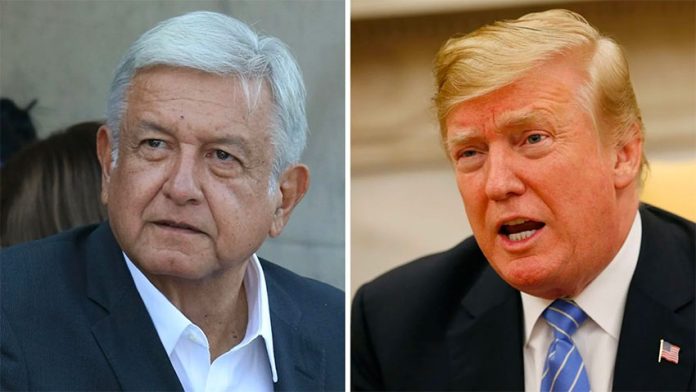When Mexico President López Obrador met U.S. President Donald Trump in Washington last week, politics and bilateral relations were inevitably in the spotlight. Yet the underlying purpose of the visit was economic: to celebrate the signing of the U.S.-Mexico-Canada agreement on trade — essentially a renewed North American Free Trade Agreement (only under a new name, comme il faut).
This trade arrangement represents one of two strategic “bets” that Mexico first made almost 30 years ago and which, jointly considered, have failed. For all his talk of national renewal and historic transformation, they will fail under López Obrador too.
Consider these bets in turn. The first was Mexico’s dramatic decision in the mid-1990s to end decades of protectionism and integrate into the world economy. Its centrepiece was NAFTA, an ambitious treaty covering trade, investment, dispute settlement and other provisions meant to provide long-term certainty about the rules of the game.
In some ways, the bet was a spectacular success. Today, Mexico exports more manufactured goods than the rest of Latin America combined. However, this did not translate into faster growth. Over the last two and a half decades, per capita growth averaged less than 1% a year, far from what is required to build a prosperous society. It is one of the reasons why López Obrador swept to electoral victory in 2018.
Why did this bet fail, though? Poor macroeconomic management was not to blame. Nor was insufficient human capital or low investment; here the country’s performance is around regional averages. Mexico grew slowly because productivity stagnated — in large part due to its second bet.
This bet was placed alongside NAFTA and its aim was to reduce poverty and inequality. This would be done by leaving intact Mexico’s outdated and dysfunctional tax, labour and social insurance regulations, as well as its institutions for contract enforcement. Instead, social inclusion would be pursued through an ad hoc combination of additional pension, health, childcare, housing and poverty programs.
The idea was that this would allow the fruits of faster growth to be shared more equally. But faster growth never came.
Why? Think of the Mexican economy as being pulled in two opposite directions. On one side, NAFTA and investments in human capital worked to increase productivity. On the other side, complex labour, tax, and social insurance regulations, coupled with weak contract enforcement, worked towards lower productivity. Somewhat like Penelope in Homer’s “Odyssey”, this unknitted during the night what the first knitted during the day.
López Obrador has, in essence, made these two bets again. He has just celebrated with Trump the renewal of the first NAFTA bet. Since the beginning of his administration, he has continued with the second bet too.
Mexico’s dysfunctional tax, labour and social insurance institutions and regulations are still there, as are the well-known deficiencies of its judicial system. Social inclusion is meanwhile pursued, yet again, through ad hoc combinations of programs: some new, some old with new names (again, comme iI faut).
Moreover, the context in which these two bets are being made is more complex than ever.
The López Obrador administration has made a number of controversial decisions on the energy sector. It has also embarked on some highly visible and questionable investment projects, including a tourist train to circumnavigate the Mayan region of southern Mexico. These have increased business sector uncertainty and damped private investment, bringing to a halt the little growth that there was.
Furthermore, the absence of a countercyclical response to Covid-19 has deepened the inevitable recession. Associating such policies with corporate bailouts, and loath to take on public debt, López Obrador has instead insisted on relative fiscal inaction — unlike governments elsewhere.
Understandably, this has attracted a lot of attention and no little criticism. But that should not distract from the more important fact that the bets Mexico is making under López Obrador are the same as before. They did not work when conditions were more favourable. Sadly, there is no reason why they will work now.
The writer, a former Mexican deputy finance minister, is a senior fellow with the Brookings Institution.
© 2020 The Financial Times Ltd. All rights reserved. Please do not copy and paste FT articles and redistribute by email or post to the web.
